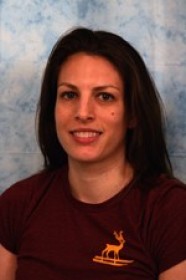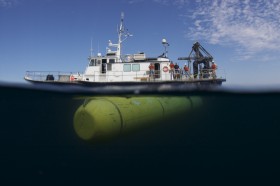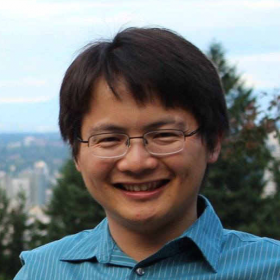Online Hierarchical Optimization for Humanoid Control
Event Location: NSH 3305Abstract: This thesis proposal presents an online approach that is based on hierarchical optimization for controlling humanoid robots. While our primary focus is on developing a fast and robust walking system that is able to follow desired footsteps, full body manipulation capability is also achieved. The proposed hierarchical system consists of three [...]
Expressive Motion for Low Degree of Freedom Robots
Event Location: NSH 3305Abstract: As social and collaborative robots move into everyday life, the need for algorithms enabling their acceptance becomes critical. The proposed work will create a framework for Expressive Motion generation that allows a robot to use modified task motions to communicate its state naturally and efficiently, including mental state, task state, and [...]
Visual Representation and Metrics for Face Classification with Image Sets
Event Location: NSH 1507Bio: Shiguang Shan is now a visiting scholar with Dr. Alex Hauptmann at CMU. He received Ph.D. degree in computer science from the Institute of Computing Technology (ICT), Chinese Academy of Sciences (CAS), Beijing, China, in 2004. He then joined ICT, CAS and has been a Professor since 2010. He is now [...]
Learning a Recurrent Visual Representation for Image Caption Generation
Event Location: NSH 1507Bio: Xinlei Chen is a PhD student in the Language Technologies Institute at Carnegie Mellon University, where he is supervised by Abhinav Gupta. He holds an Bachelor's degree in Computer Science from Zhejiang University, China. His research focuses on the intersection of computer vision and natural language processing and he is particularly [...]
Natural Language Direction Following for Robots in Unstructured Unknown Environments
Event Location: NSH 3305Abstract: Robots are increasingly performing collaborative tasks with people in our homes, workplaces, and outdoors, and with this increase in interaction comes a need for efficient communication between human and robot teammates. One way to achieve this communication is through natural language, which provides a flexible and intuitive way to issue commands [...]
Planning for Robot Recovery with Varying Model Fidelity
Event Location: GHC 4405Abstract: For robots to be deployable, robot systems need to operate reliably for long periods. Reliable operation requires robots to reason about events that impede task progression. Robots that consider failure recovery strategies are more dependable and robust to unforeseen events. Recovery strategies allow the robot to continue consistent task operation even [...]
Advancing Autonomous Operations in the Field From Outer to Inner Space
Event Location: NSH 1305Bio: Kanna is a Visiting Professor, Faculty of Engineering, Univ. of Porto affiliated with the Underwater Systems Technology Lab. Till recently he was the Principal Researcher in Autonomy at the Monterey Bay Aquarium Research Institute (http://www.mbari.org) a privately funded non-profit Oceanographic institute which he joined in October 2005. Prior to that he [...]
Mapping, Localization, and Self-Driving Vehicles
Event Location: NSH 1305Bio: John J. Leonard is Professor of Mechanical and Ocean Engineering and Associate Department Head for Research in the MIT Department of Mechanical Engineering. He is also a member of the MIT Computer Science and Artificial Intelligence Laboratory (CSAIL). His research addresses the problems of navigation and mapping for autonomous mobile robots. [...]
Visual Parsing with Weak Supervision
Event Location: NSH 1507Bio: Jia Xu is a PhD candidate of the Computer Sciences Department at the University of Wisconsin-Madison, working with Prof. Vikas Singh, Prof. Jerry Zhu, and Prof. Chuck Dyer. He was a visiting student at University of Toronto in Summer 2014 and at TTI-Chicago during Summer 2013, both working with Prof. Raquel [...]








